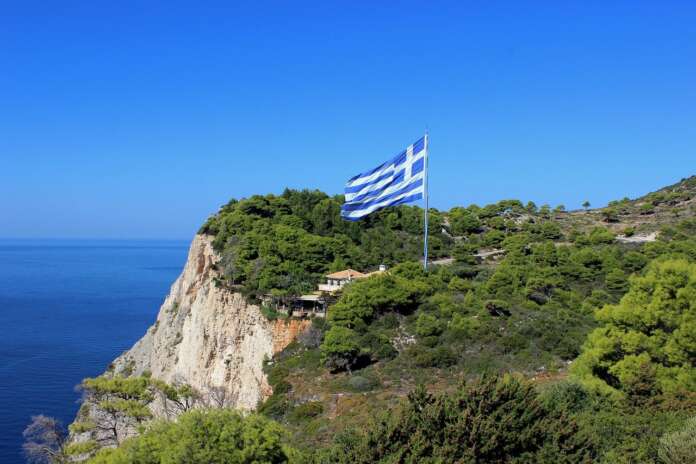The European Unions is working to become the first carbon-neutral continent by 2050. An ambitious goal that can be reached only if all the Member States cooperate and set ambitious targets themselves.
Kostas Skrekas, Greece’s Minister of Environment and Energy has pointed out that Greece has one of the most ambitious climate plans in Europe with the decarbonisation process proceeding faster than in any other countries of the bloc.
Speaking at the SolarPower Summit, organised by Brussels-based association SolarPower Europe, Minister Skrekas presented the nine pillars on which the Greek energy strategy is based. First of all the decarbonisation of the energy mix, which is happening at a faster pace than any other countries in Europe. Indeed, all lignite plants will be closed by 2023 with one exception: the coal-fired thermal power plant Ptolemaida 5 will be converted to gas in 2025.

Mr Skrekas mentioned also an investment worth 9 billion euro for the modernisation of the electricity grid, making it more flexible and improving the connectivity of islands with the mainland by 2030. The other pillars include measures for energy storage, the introduction of green Power Purchase Agreements (PPAs), the innovation of the building stock, the importance of electromobility and the State support for hydrogen projects.
What is the most crucial aspect, is to involve everybody, decision-makers, institutions, local authorities, citizens, especially from the coal regions so that a sustainable transformation can be achieved.
The COVID crisis indeed represented a huge challenge to overcome over the last year but it has offered the opportunity to build back better. In particular, the Recovery Fund will be a crucial tool for a green recovery. Greece has requested a total of 30.5 billion euro in support under the Recovery and Resilience Facility (RFF), 17.8 billion euro in grants and 12.7 billion euro in loans. The Greek plan, as received by the European Commission, is structured around four pillars: green, digital, employment, skills and social cohesion and private investment and economic and institutional transformation.
Solar will surely play an important role in the recovery as it can create more jobs than any other energy industry and it is already cheaper than most of the existing energy technologies. Therefore, also Greece, a country with an average of 2,756 hours of sunlight per year, must utilise solar technologies for a sustainable recovery. And the modernisation of the electricity grid includes also the integration of renewable energy sources.
“We must facilitate solar rooftops installations and, in this regard, new schemes will be announced which will use money from both the Recovery Fund and the Just Transition Fund,” Minister Skrekas said, underlining once again the importance of modernising the transmission and distribution networks.
“The flexibility and resilience of the energy system is a prerequisite of the fulfilment of our national program,” he added. “It is always important to choose cost-effective solutions to not impact too much on our citizens. That’s why we are utilising these Funds, especially for the CAPEX costs. Competitive green energy prices are a key element for the competitiveness of Europe itself.”
However, it is not only about money and sometimes the process can be slowed down by obstacles in obtaining permits. Aristotelis Chantavas, President of Enel Green Power and SolarPower Europe reminded us that in Greece the permitting process is already simplified since last year, which resulted in a large number of projects under development that by far exceed the 2030 national climate targets.
“This huge interest reflects the good investment environment of Greece and the effectiveness of the policies we have implemented,” noted Minister Skrekas. “We are following very closely the booming development of this sector and we are already planning some measures in the near future to make sure that all this interest will lead to other investments. Therefore, in the next weeks, we will announce the second phase of the simplification process.”
While renewables are a great way to generate green electricity, they have some issues when it comes to storing it. Nowadays, storage is of the uttermost importance, especially regarding batteries. Greece hopes to have a legal framework approved by the EU authorities by the end of June so that 450 million euro can be allocated from the RFF to the development of battery storage and hydro pumps.
Regarding PPAs, Minister Skrekas revealed that the internal target is to have the first green PPAs between energy producers and energy consumers by the end of this year so that in 2022 Greece can have at least 20 per cent of the demand of the energy-intensive industry covered by green PPAs.
“PPAs are also a good scheme to solve the issue of energy poverty and extend the benefits to everyone,” Mr Skrekas concluded, announcing that a proposal will be sent to the EU by the end of June.



